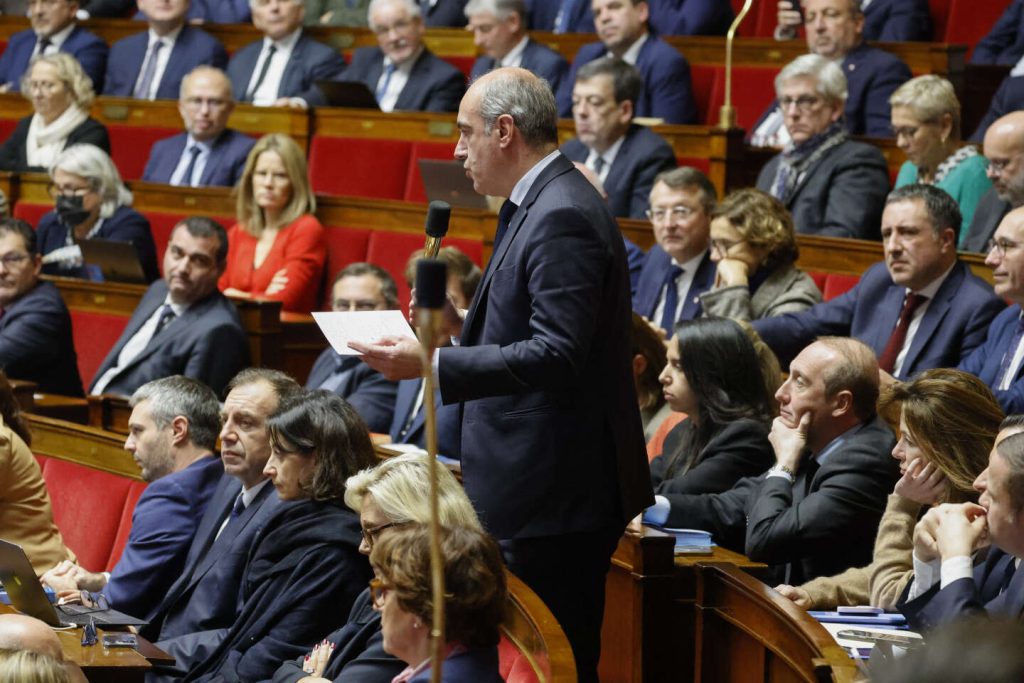Olivier Marleix, president of the Les Républicains MPs at the National Assembly, has raised the possibility of a motion of censure to challenge the government. In order to do this, they would need to gather 58 signatures from MPs, a process that Marleix believes will not be difficult. However, with only 61 MPs in the party, there is little room for error. The divisions within the party, particularly stemming from disagreements over issues such as pension reforms, may prevent them from successfully rallying enough support for the motion. Some MPs, such as Nicolas Forissier, advocate for a coalition with Macron’s party rather than taking a confrontational stance.
Despite the push for a motion of censure, some MPs within Les Républicains are hesitant to sign on. Concerns about potential consequences, such as early elections and the risk of losing seats, weigh heavily on their decision-making process. The exclusion of certain members from the party, such as Horizons du Rhône, has also created tensions within the party. In addition, there is a growing sense of frustration with the government, particularly in response to what is perceived as an insincere budget presentation and dissatisfaction with Minister of Economy Bruno Le Maire.
While there is support for a motion of censure among some members, doubts persist about whether they will be able to gather the necessary 58 signatures. Pierre-Henri Dumont, a proponent of censure, believes they may need to seek additional support outside of their party, such as from non-aligned MPs or members of the LIOT group. The LIOT group, consisting of 21 members, is seen as a potential “reserve army” that could help bolster the numbers needed for the motion. Discussions are rumored to be taking place between Les Républicains and LIOT, although party leaders remain tight-lipped about any potential collaboration.
Overall, the decision to push for a motion of censure reflects a wider trend of growing discontent within the Les Républicains party towards the government. While some MPs remain cautious about the potential risks involved, others are more determined to challenge the government’s actions and hold them accountable. The outcome of this internal debate within the party will not only impact their relationship with the government but also shape their positioning ahead of upcoming elections. As tensions continue to simmer within the party, the path forward remains uncertain.















